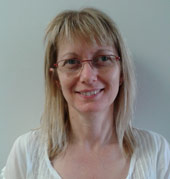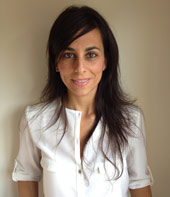Our Consultants
Our consultants possess an extensive range of experience and expertise accumulated over years of work in this specialist clinical field. We have established an elite team to ensure our consultancy can provide a wide spectrum of services for this unique client group. Among our consultants are two SMART inventors/developers, referred to as SMART Masters, who are the most highly qualified SMART assessors in the world. There are four different levels of SMART accreditation. Practitioners at the top two levels, SMART Masters and Expert SMART Assessors, can conduct complex medico-legal work. We also have Advanced SMART Assessors who are qualified to carry out assessments to identify future intervention and management plans.
Helen Gill-Thwaites MBE, MSc, Dip COT
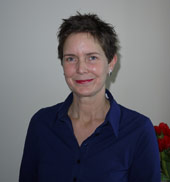
Helen Gill-Thwaites, a SMART Master, has worked at the Royal Hospital for Neuro-disability (RHN) in London since 1989 and in this time has developed considerable experience in the assessment of VS and MCS patients. Helen was head of the Occupational Therapy department from 1994-2005. Together with Dr Karen Elliott and Ros Munday, she has dedicated her work to the development of the SMART tool, which has been designed to detect potential awareness in the VS and MCS patient. Andrews et al (1996) reported that of 30 patients admitted with a diagnosis of VS, 43% were found to be aware following an assessment with SMART. To standardise the tool, Helen has conducted a range of research studies, published papers in medical journals (see References), designed and led SMART assessor accreditation courses, and presented at conferences worldwide.
In the Royal College of Physicians’ guidelines, SMART is recommended in the law courts as a tool of choice to support expert physicians in their diagnosis of the patient.
In 2000, Helen jointly won the BBC People’s Award for Innovation with her colleague Ros Munday. She was appointed as an International Fellow at the Institute of Neuropalliative Rehabilitation (RHN) in 2003. In 2011, Helen received an MBE in the New Year’s Honours List. She was a member of the Royal College of Physicians’ working party 2013 and 2020 that revised the guidelines on the management of patients with PDOC. She has conducted a number of medico-legal SMART assessments and acted as an Expert Witness on several prominent cases in the Royal Courts of Justice. Helen also works in collaboration with Dr Ann-Marie Morrissey and the team at the University of Galway with PDOC research.
Karen Elliott PhD, MSc, Dip COT, Cert Ed
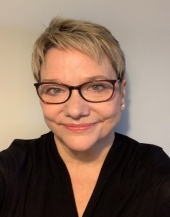
Karen Elliott, a SMART Master, qualified from the London School of Occupational Therapy. She took up a post in 1985 at the Royal Hospital for Neuro-disability (RHN), where she was based until 1994. During that time she worked primarily on the Profound Brain Injury Unit with patients in VS and MCS.
In 1987, Karen pioneered the setting up of the Occupational Therapy services on the first Brain Injury Unit in the UK. She initiated the development of a sensory stimulation programme to meet the needs of the patients being admitted to a pilot Profound Brain Injury Unit at the RHN. This was developed over the years to include both an assessment and intervention programme, which has been subsequently standardised to the SMART assessment used today. The early development of this assessment included a 3-year project in collaboration with the University of Surrey into ‘The Efficacy of Sensory Stimulation’. The project generated a range of papers (see References), which utilised early assessment protocols and enabled refinement of the assessment tools through analysis of research and growing experience of the therapists. Karen was head of the Occupational Therapy department, and her involvement in research with patients in VS led to her undertaking a Masters degree in research methods at King’s College London. On leaving the RHN, Karen became Course Director of Occupational Therapy at Colchester Institute and later a lecturer at the University of East Anglia.
In 2006, Karen took up a post as Research Fellow in Occupational Therapy at the Institute of Neuropalliative Rehabilitation (RHN), which brought a return to her primary interest in PDOC. The research led to her completing a PhD in 2011 on ‘The Impact of Low Awareness States on the Occupational Life of Family Members’.
Karen was a member of the Royal College of Physicians’ working party 2013 and 2020 that revised the guidelines on the management of patients with PDOC. Karen also works in collaboration with Dr Ann-Marie Morrissey and the team at the University of Galway with PDOC research.
Susanna Kriel BOcc Ther
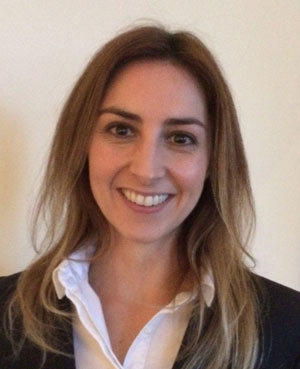
Susanna Kriel, an Expert SMART Assessor, qualified as an Occupational Therapist in 2002 from the University of the Free State in South Africa. She has worked in the UK since 2004. Susanna has gained experience working within the field of Neurology in different settings, including acute hospital wards, in-patient rehabilitation and community neurorehabilitation; as a result, she has a special interest in complex neurological conditions. She became a Senior l Occupational Therapist at the Royal Hospital for Neuro-disability (RHN) in 2010, and spent five years on the Profound Brain Injury Unit. Leading the Occupational Therapy team, she developed highly specialist skills in the assessment, intervention and management of complex neurological conditions: specifically, caring for patients with PDOC.
She is highly proficient in the application and use of SMART and, consequently, has co-led SMART courses, participated in clinical research projects, and managed the team of SMART assessors and the accreditation process for SMART assessors worldwide.
Susanna is currently practising as an Occupational Therapist on neurosurgical and neurorehabilitation units in London. She continues to be involved in SMART developments as a member of the SMART Expert/Advanced Assessors Committee, and as an educator on SMART courses.
Anisa Cassim BSc (Hons) OT
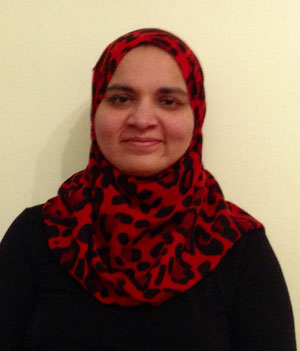
Anisa Cassim, an Advanced SMART Assessor, qualified as an Occupational Therapist in 1999 from the University of the Witwatersrand in South Africa. She spent the first three years of her career in South Africa, practising in acute and rehabilitation settings in Paediatric and Adult Neurology in one of the largest hospitals in the southern hemisphere. Her Paediatric involvement also included working with patients with developmental delay, learning difficulties, and traumatic and non-traumatic brain injury. This invaluable experience in South Africa laid the foundation for her decision to specialise in Neurology when she moved to the UK in 2003.
Once based in London, Anisa started working at the Royal Hospital for Neuro-disability (RHN) as a Senior ll Occupational Therapist on the Profound Brain Injury Unit. This role allowed her to consolidate the knowledge and skills gained in the assessment and intervention of patients with neurological conditions, particularly PDOC. Subsequently, Anisa became a Senior l Occupational Therapist for four years, supporting therapists in the management of patients with profound brain injury. While at the RHN, she has also developed skills in treating neurobehavioural and ventilator-dependent patients.
As a Clinical Specialist, Anisa now divides her time between working at the RHN and in the private sector. Anisa is involved in SMART developments as a member of the SMART Expert/Advanced Assessors Committee, and assists with SMART courses.
Alison McCann
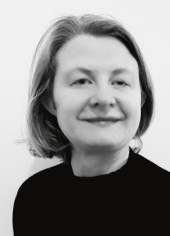
Alison McCann qualified from the Robert Gordon University in Aberdeen in 2001 with an honours degree in Occupational Therapy. She worked at Cambridge University Hospital (Addenbrookes Hospital) from 2001-2003 where she gained invaluable experience in neurosurgery and acute neuro-rehabilitation. In 2004, she was appointed Senior Occupational Therapist with the Brain Injury Program at the National Rehabilitation Hospital, where she continues to work primarily with patients with severe Brain Injury and specifically patients with Prolonged Disorders of Consciousness.
Alison undertook training as a SMART assessor in 2007 and since upskilled to advanced SMART assessor level. Alison has experience as a clinical educator through her role as Clinical Practice Tutor at the University of Dublin, Trinity College (2009-2015). In 2016 Alison was appointed to manager of the occupational therapy department at the National Rehabilitation Hospital and returned to clinical practice in 2018.
In 2017, she received a Masters through research at the University of Dublin, Trinity College. Her Masters’ research was the first study in Ireland to explore the lived experiences of family members providing care to relatives in PDOC. Alison has been involved in research in to the many aspects of PDOC care and management including misdiagnosis (see reference), use of various assessment tools including MATADOC and CRS-R (see reference), the use of neurostimulant in conjunction with multi-modal sensory stimulation (see reference) and the application of brain computer interface with PDOC. She is currently undertaking research into the training needs of healthcare professionals in the use of the Coma Recovery Scale revised. Alison has been involved in an UK/Ireland benchmarking study (see reference), the findings of which contributed to the first draft of the Royal College of Physicians guidelines.
Alison has a special interest in assessment and diagnosis of consciousness and the medical, legal and ethical issues arising relating to the care and management of PDOC. Alison is registered with CORU (Regulating body for Health and Social Care Professionals, Ireland) and is a member of the Association of Occupational Therapists of Ireland.
Fiona Haughey

Fiona graduated from University of Dublin, Trinity College in 2006 with an honours degree in occupational therapy with a distinction in anatomy. She worked in Our Lady’s Hospice Harold’s Cross for one year prior to commencing a career in neuro-rehabilitation at the National Rehabilitation Hospital, Dublin.
Fiona has over 10 years’ clinical experience working in neuro-rehabilitation with both adults and children in the areas of acquired brain injury, spinal cord injury, vocational rehabilitation and medico-legal practice. Fiona currently works as a clinical specialist occupational therapist and has experience as a clinical educator through her role as Clinical Practice Tutor at the University of Dublin, Trinity College, University of Limerick and NUI Galway.
Fiona is an accredited SMART assessor since 2010 and has completed numerous SMART assessments with a range of diagnosis. Fiona has been involved in research in to the many aspects of PDOC care and management including use of various assessment tools including MATADOC and CRS-R. She is currently undertaking research into the training needs of healthcare professionals in the use of the Coma Recovery Scale revised. Fiona has been involved in an UK/Ireland benchmarking study, the findings of which contributed to the first draft of the Royal College of Physicians guidelines.
In 2016 Fiona completed her Master’s degree in Advanced Professional Practice in Neurological Rehabilitation at the University of Plymouth.
Fiona has completed formal training in medico-legal report writing and has been called as an expert witness for a number of high profile cases in Ireland and internationally. Fiona has a special interest in assessment and diagnosis of consciousness and the medical, legal and ethical issues arising relating to the care and management of PDOC. Fiona is registered with CORU (Regulating body for Health and Social Care Professionals, Ireland) and is a member of the Association of Occupational Therapists of Ireland.
Siobhan Tidey
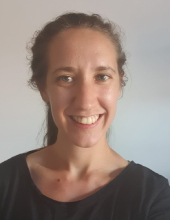
Siobhan Tidey qualified as an Occupational Therapist from The University of East Anglia in 2011.
Siobhan started working at the Royal Hospital for Neuro-disability (RHN) as a Senior II Occupational Therapist on the profound brain injury unit, where she developed a specialist interest in working with individuals in a prolonged disorder of consciousness (PDOC). In 2015 Siobhan achieved her accreditation as an assessor in the Sensory Modality Assessment and Rehabilitation Technique (SMART) and in 2019 she went on to successfully achieve her Advanced SMART accreditation status.
Siobhan is familiar with and competent in using a range of assessments as recommended by the Royal College of Physicians to effectively assess, compare and analyse an individual’s responses and level of awareness. During her time at the Royal Hospital for Neuro-disability, Siobhan helped with research for the SMART tracker.
Siobhan became a Senior I Occupational Therapist within the continuing care specialist nursing home service at the RHN in 2016. In this role, Siobhan devised a range of sensory activity groups specifically for individuals in a prolonged disorder of consciousness. Siobhan also devised a pathway within the nursing home service for individuals in a prolonged disorder of consciousness to access an annual review of their level of awareness as per the Royal College of Physicians guidance for PDOC. In 2017 Siobhan gained further experiencing working with individuals in PDOC and their families through her unique role as ward manager within a 22- bed unit of a specialist nursing home at the Royal Hospital for Neuro-disability.
Siobhan recognises the importance and value of involving families in assessment and treatment planning to ensure the best outcome for the individual. Jointly with the family, Siobhan devises individual sensory programmes to elicit functional potential and works with the family to enable them to interact effectively with their loved one. Siobhan is able to communicate and break down complex information regarding assessment and treatment planning to families, carers and support workers.
Siobhan recognises that individuals in a prolonged disorder of consciousness may present with additional complex needs. Siobhan is experienced and skilled in complex postural management, including upper limb assessment and management, spasticity management and seating/wheelchairs. She can assess and set up 24-hour postural management programmes, and make recommendations for optimal posture to aid function, maintain comfort and prevent further deformities.
Siobhan is committed to continued professional development and presented at the Royal College of Occupational Therapy Annual Conference in 2017 and 2019. Siobhan currently works in the private sector as an independent occupational therapist within the community, specialising in the neurological rehabilitation of individuals following traumatic and non-traumatic brain injury.
Standards of Practice
As professional practitioners, our consultants are registered with the Health and Care Professions Council (HCPC), the British Association of Occupational Therapists (BAOT) and the College of Occupational Therapists (COT). As registrants of these professional bodies, we adhere to the Code of Ethics and Professional Conduct (COT) and the Standards of Conduct, Performance and Ethics (HCPC). All consultants working for Gill-Thwaites & Elliott Consultants Ltd will have professional membership of their relevant monitoring body.
Quality Assurance and Feedback of Complaints
Gill-Thwaites & Elliott Consultants Ltd strives at all times to provide a high standard of practice and an excellent service to our clients. We would encourage clients to give feedback at any time either verbally or in writing, using the online enquiry form. If a client is unhappy and wishes to complain, we would ask that they contact us either by letter or using the online enquiry form. Any complaint will be acknowledged within three working days, and will then be investigated fully by either Helen Gill-Thwaites or Karen Elliott.
References by Gill-Thwaites & Elliott Consultants
Andrews, K., Murphy, L., Munday, R. and Littlewood, C. (1996) Misdiagnosis of the vegetative state: retrospective study in a rehabilitation unit.
British Medical Journal, 313, 13-16.
Blacker, D., Broadhurst, L. and Teixeira, L. (2008) The role of occupational therapy in leisure adaptation with complex neurological disability: a discussion using two case study examples.
NeuroRehabilitation, 23(4): 313-319.
Gill, H. (1996) SMART and persistent vegetative state, part one.
British Journal of Occupational Therapy: Occupational Therapy News – 4/9 October.
Gill, H. (1996) SMART and persistent vegetative state, part two.
British Journal of Occupational Therapy: Occupational Therapy News – 4/10 November.
Gill-Thwaites, H. (1997) The Sensory Modality Assessment and Rehabilitation Technique – a tool for assessment and treatment of patients with severe brain injury in a vegetative state.
Brain Injury, 11: 723-734.
Gill-Thwaites, H. and Munday, R. (1999) The Sensory Modality Assessment and Rehabilitation Technique (SMART): a comprehensive and integrated assessment and treatment protocol for the vegetative state and minimally responsive patient.
Neuropsychological Rehabilitation, 9(3/4): 305-320.
Gill-Thwaites, H. and Munday, R. (2004) The Sensory Modality Assessment and Rehabilitation Technique (SMART): A valid and reliable assessment for the vegetative state and minimally conscious state patient.
Brain Injury, 18(12): 1255-1269.
Gill-Thwaites, H. (2006) Lotteries, loopholes and luck: misdiagnosis in the vegetative state patient.
Brain Injury, 20(13-14): 1321-1328.
Gill-Thwaites, H. (July 2011) Letter to Editor in response to article by American Congress of Rehabilitation Medicine, Brain-Injury-Interdisciplinary Special Interest Group, Disorders of Consciousness Task Force.
Archives of Physical Medicine and Rehabilitation, 92(7): 1181-1182.
Gill-Thwaites, H., Elliott K., Accurate assessment and investigation of clients.
Personal Injury Law Journal. November 2017. No. 160.
Jones, S.J., Vaz Pato, M., Sprague, L., Stokes, M., Munday, R. and Haque, N. ( 2000) Auditory evoked potentials to spectro-temporal modulation of complex tones in normal subjects and patients with severe brain injury.
Brain, 123: 1007-1016.
MacKenzie, S., Gale, E. and Munday, R. (2006) Putney Auditory Single Word Yes/No Assessment. Development of a reliable test of yes/no at a single word level in patients unable to participate in assessments requiring a specific motor response: an exploratory study.
International Journal of Language and Communication Disorders, 41(2): 225-234.
Majerus, S., Gill-Thwaites, H., Andrews, K. and Laureys, S. (2005) Behavioural evaluation of consciousness in severe brain damage.
Progress in Brain Research, 150: 397-413.
Millwood, J., MacKenzie, S., Munday, R., Pierce, E. and Fiske, J. (2005) A report from an investigation of abnormal oral reflexes, lip trauma and awareness levels in patients with profound brain damage.
Journal of Disability and Oral Health, 6(2): 72-78.
Munday, R. (2005) Vegetative and minimally conscious states: how can occupational therapists help?
Neuropsychological Rehabilitation, 15(3/4): 503-513.
Cambridge: Cambridge University Press.
Royal College of Physicians (2020) Prolonged disorders of consciousness following sudden onset brain injury, National clinical guidelines.
London: Royal College of Physicians Publications.
Turner-Stokes, L., Kitzinger, J., Gill-Thwaites, H., Playford, E.D., Wade, D., Allanson, J., Pickard, J. and Royal College of Physicians’ Prolonged Disorders of Consciousness Guidelines Development Group (November 2012) fMRI for vegetative and minimally conscious states.
British Medical Journal, 345:e8045.
Wilson, S.L., Powell, G.E., Elliott, K. and Thwaites, H. (1991) Sensory stimulation in prolonged coma: four single case studies.
Brain Injury, 5(4): 393-400.
Wilson, S.L., Powell, G.E., Elliott, K. and Thwaites, H. (1993) Evaluation of sensory stimulation as a treatment for prolonged coma – seven single experimental case studies.
Neuropsychological Rehabilitation, 3(2): 191-201.
Wilson, S.L., Powell, G.E., Brock, D. and Thwaites H. (1996) Vegetative state and responses to sensory stimulation: an analysis of 24 cases.
Brain Injury, 10(11): 807-818.
Wilson, S.L., Brock, D., Powell, G.E., Thwaites, H. and Elliott, K. (1996) Constructing arousal profiles for vegetative state patients – a preliminary report.
Brain Injury, 10(2): 105-113.
Wilson, S.L. and Gill-Thwaites, H. (2000) Early indications of emergence from vegetative state derived from assessment with the SMART – a preliminary report.
Brain Injury, 14(4): 319-331.
